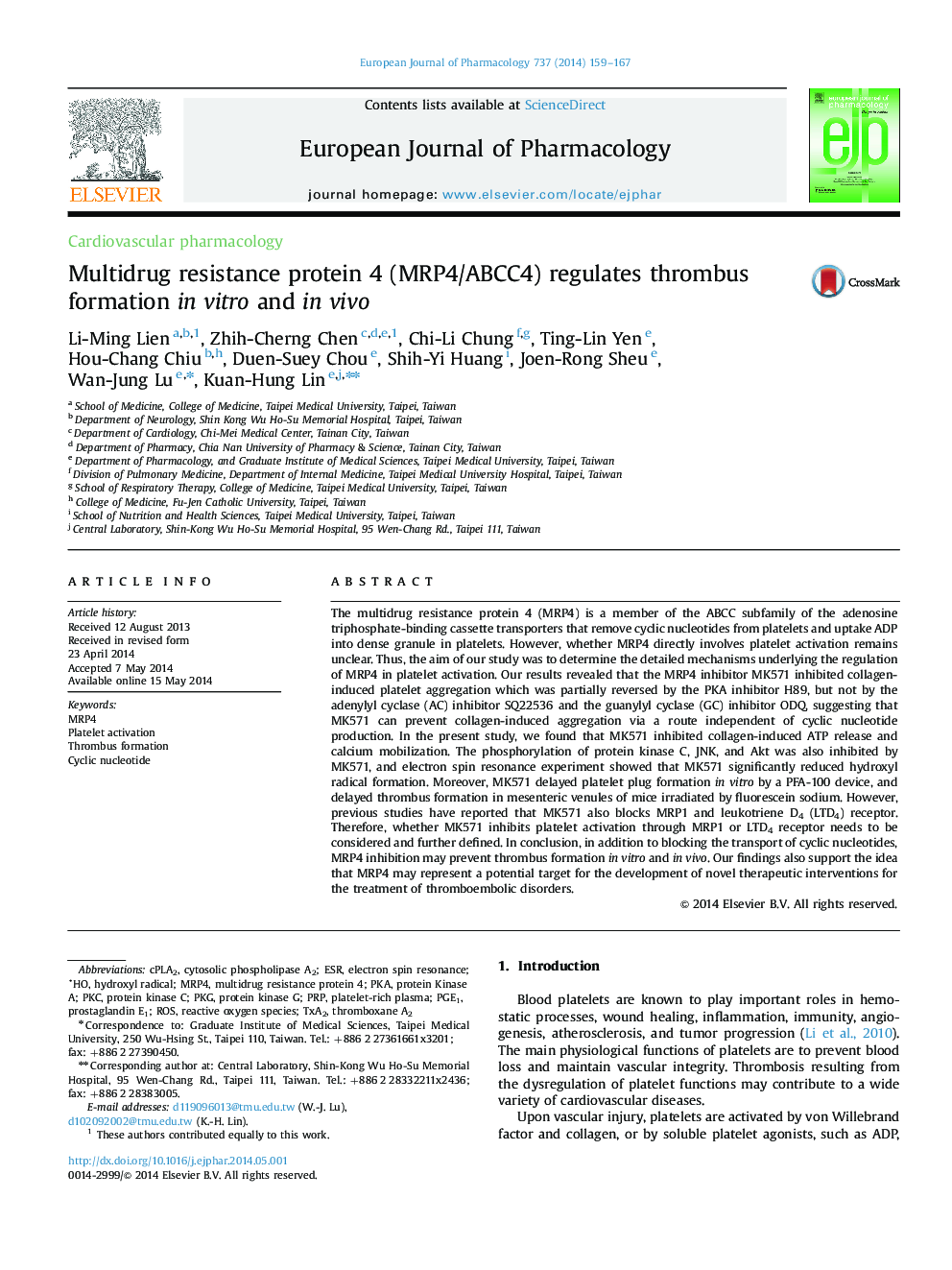| کد مقاله | کد نشریه | سال انتشار | مقاله انگلیسی | نسخه تمام متن |
|---|---|---|---|---|
| 2531739 | 1558944 | 2014 | 9 صفحه PDF | دانلود رایگان |

The multidrug resistance protein 4 (MRP4) is a member of the ABCC subfamily of the adenosine triphosphate-binding cassette transporters that remove cyclic nucleotides from platelets and uptake ADP into dense granule in platelets. However, whether MRP4 directly involves platelet activation remains unclear. Thus, the aim of our study was to determine the detailed mechanisms underlying the regulation of MRP4 in platelet activation. Our results revealed that the MRP4 inhibitor MK571 inhibited collagen-induced platelet aggregation which was partially reversed by the PKA inhibitor H89, but not by the adenylyl cyclase (AC) inhibitor SQ22536 and the guanylyl cyclase (GC) inhibitor ODQ, suggesting that MK571 can prevent collagen-induced aggregation via a route independent of cyclic nucleotide production. In the present study, we found that MK571 inhibited collagen-induced ATP release and calcium mobilization. The phosphorylation of protein kinase C, JNK, and Akt was also inhibited by MK571, and electron spin resonance experiment showed that MK571 significantly reduced hydroxyl radical formation. Moreover, MK571 delayed platelet plug formation in vitro by a PFA-100 device, and delayed thrombus formation in mesenteric venules of mice irradiated by fluorescein sodium. However, previous studies have reported that MK571 also blocks MRP1 and leukotriene D4 (LTD4) receptor. Therefore, whether MK571 inhibits platelet activation through MRP1 or LTD4 receptor needs to be considered and further defined. In conclusion, in addition to blocking the transport of cyclic nucleotides, MRP4 inhibition may prevent thrombus formation in vitro and in vivo. Our findings also support the idea that MRP4 may represent a potential target for the development of novel therapeutic interventions for the treatment of thromboembolic disorders.
Figure optionsDownload high-quality image (157 K)Download as PowerPoint slide
Journal: European Journal of Pharmacology - Volume 737, 15 August 2014, Pages 159–167